The latest wave of the YouGov/CBS News 2016 Battleground Tracker polled likely primary voters in New York, Pennsylvania and California
Former US Senator for New York Hillary Clinton and Queens-born Donald Trump are both poised to claim victory in New York, according to the latest wave of the YouGov/CBS News Battleground Tracker. Likely primary voters in California, who head to the polls on June 7, are also inclined towards Clinton and Trump. In Pennsylvania, where only Republicans were polled, Trump holds a wide lead.
The Democrats
New York has become an unexpected battleground for Democrats, following a string of 8 primary victories for Vermont Senator Bernie Sanders, who was born in Brooklyn. Yet Clinton maintains a 10-point lead in the state, identical to the previous YouGov/CBS poll and driven by broad-based support across demographics. The survey was conducted from April 13-15, partly before and partly after the Democratic debate in Brooklyn on April 14.
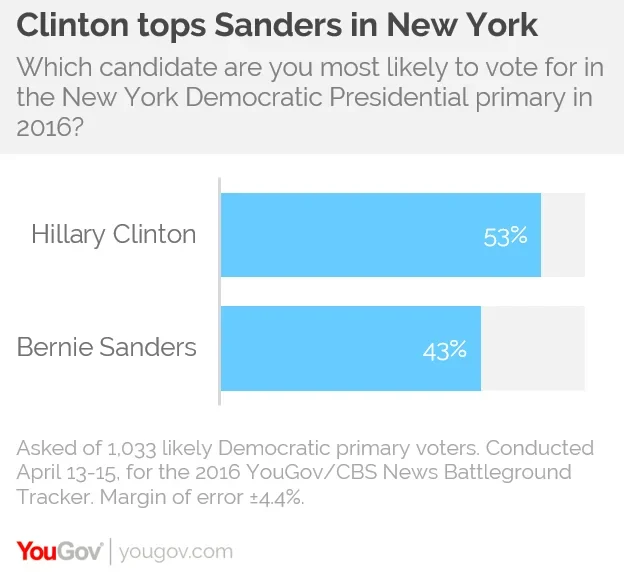
247 delegates are up for grabs in New York, more than any other state besides California.
The only groups with whom Sanders bests his primary opponent are “very liberal” voters (55% to 44%) and 18-29 year olds (66% to 28%). New York is also a “closed primary”, meaning only voters registered as Democrats can participate. This appears to be a boon for Clinton: she leads by 19 points (57% to 38%) among registered Democrats who also identify with the party but trails by 46 (72% to 26%) among the much smaller share of voters who are registered as Democrats but describe themselves as independents.
In the California primary, which offers 475 delegates, Clinton has a slightly bigger lead. She wins the support of 52% of likely Democratic primary voters in California, against 40% for Bernie Sanders.
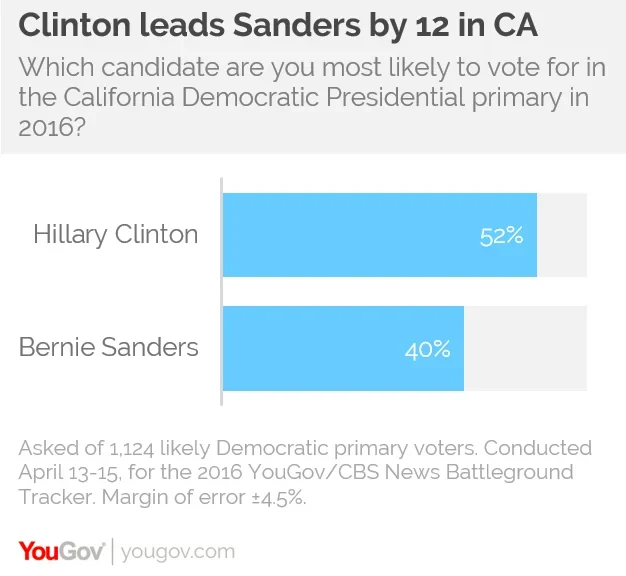
In both states the race appears to have shaped up as a competition between “head” and “heart”. Clinton is viewed as more electable, more likely to achieve her policy goals and more specific in describing those policies. Sanders, in contrast, is seen as more authentic, trustworthy and understanding of voters.
The Republicans
On the Republican side, Donald Trump holds a commanding lead in New York. Trump garners the support of 54% of likely voters in New York, where he has been a well-known public figure for decades. Ted Cruz is far behind with 21% support, barely ahead of John Kasich with 19%. Trump’s 33-point lead is little-changed from the 31-point lead he held two weeks ago. New York is worth 95 GOP delegates.
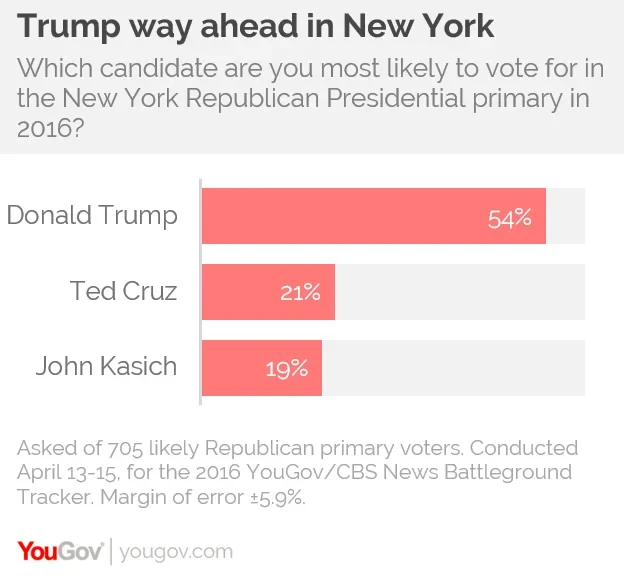
Despite weeks of controversy over Trump’s comments about women and abortion, there is little sign of a major gender gap forming in the Republican primary race. In fact, Trump’s support is fairly even across demographic groups, but the non-Trump vote does vary significantly. For example, while Trump earns around half of the vote regardless of self-identified ideology, Cruz leads Kasich by 34 points among “very conservative” New Yorkers and trails Kasich by 17 among “moderate” voters. Similarly, Cruz beats Kasich among Tea Party supporters and trails among the movement’s opponents (while Trump leads with majority support in both groups).
Donald Trump also holds wide lead in Pennsylvania and California, which offer 243 delegates total. In Pennsylvania, which holds it’s primary on April 26th, Trump has 46% support, with Cruz in second with 26% and Kasich in third with 23%.
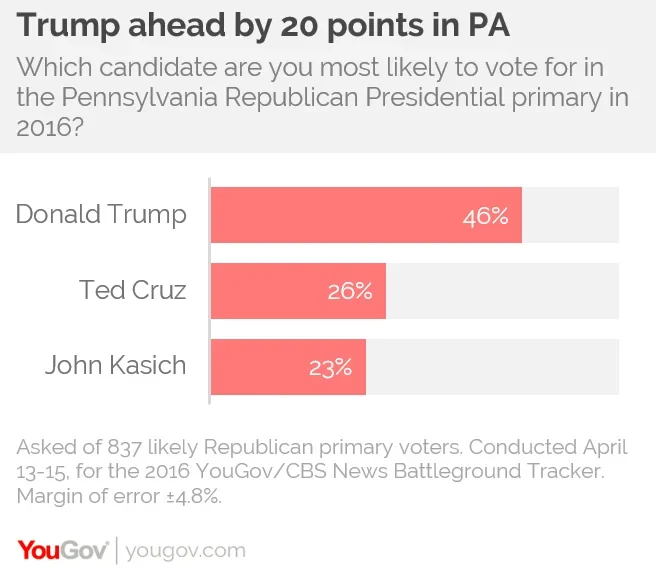
Trump leads with 49% in California, followed by 31% for Cruz and 16% for Kasich.
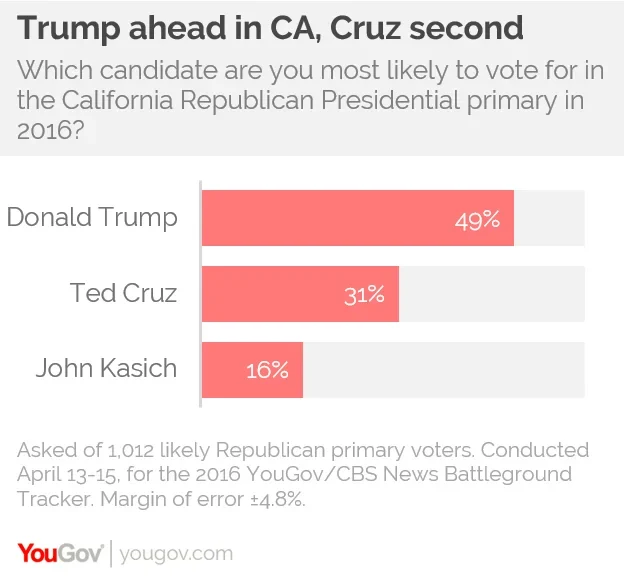
Such large leads in delegate-rich states bode well for Trump’s chances of reaching the 1,237 delegates necessary to clinch the nomination, a prospect many called into question following Cruz’s recent successes in Wisconsin, North Dakota and Colorado.
However, if he falls short, the polls also find limited support for giving Trump the nomination merely on the grounds of his having more delegates than the other candidates. In California, only 44% say Trump should be the nominee in this scenario – 50% want Kasich and Cruz to fight for support at the convention and another 6% would be happy to turn to someone who isn’t even running right now. Similarly, most Pennsylvania voters would like to see the convention contested. New York is the exception, with 56% backing Trump in the event he musters a plurality of delegates before the convention but not a majority.
The YouGov/CBS News 2016 Battleground Tracker is based on surveys of registered voters in New York, Pennsylvania and California. In Pennsylvania, only Republican voters were contacted for this wave. See a more detailed description of the methodology used here.
See additional questions with demographic breakdowns for California, New York and Pennsylvania







